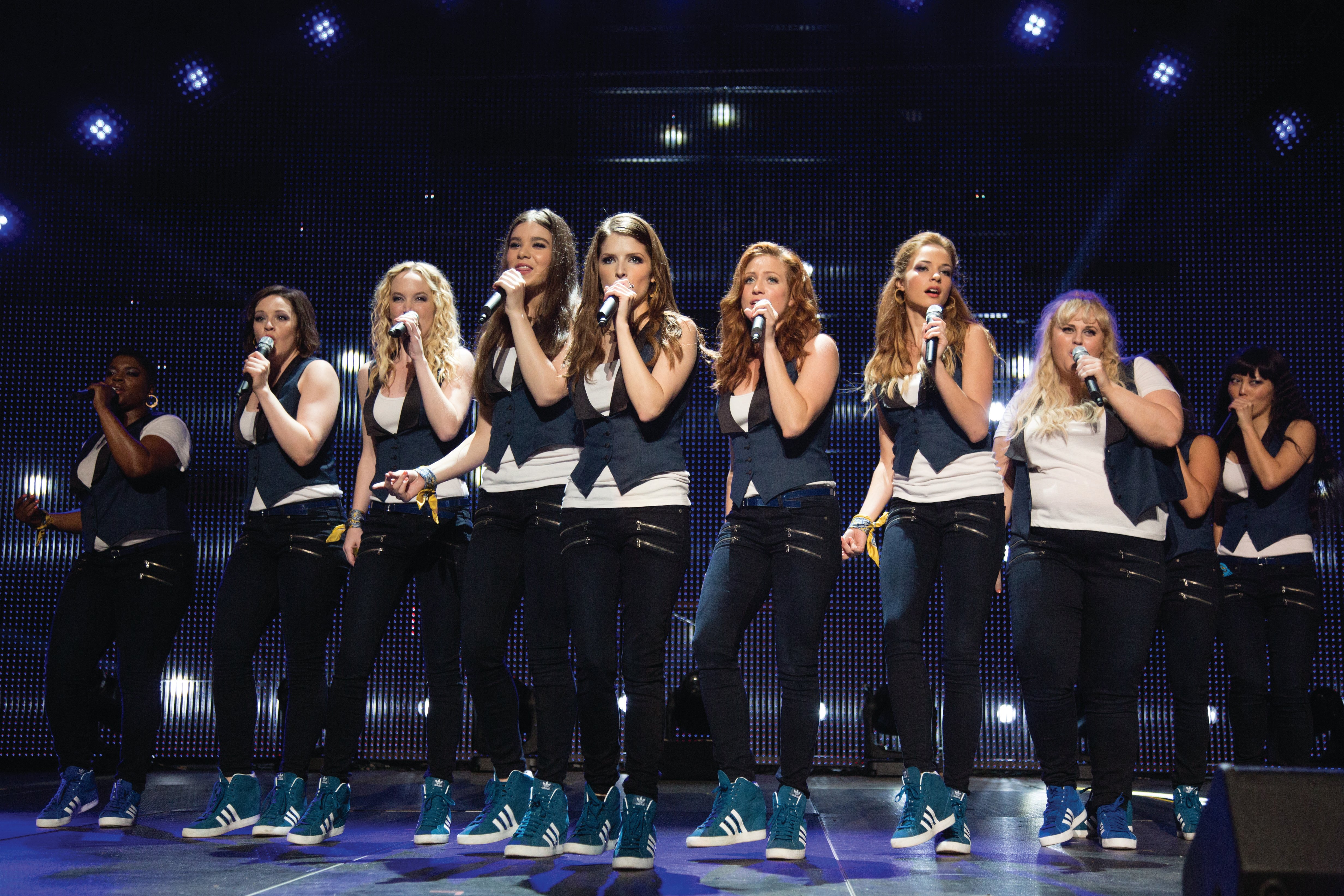In the opening of “Pitch Perfect,” all-female a capella group the Barden Bellas fail at a national competition because one performer accidentally vomits. In the opening of “Pitch Perfect 2,” the Bellas fail at a national performance because one performer has a wardrobe malfunction and accidentally flashes the President her crotch. Following this event, the Bellas are disqualified from competing in America, mocked by every possible media figure and banned from recruiting any new members. And as Kay Cannon’s script makes very clear, their only hope not just for redemption, but to even exist anymore as a group, is to win the World A Cappella Championships, a competition no American team has won. Ever.
Give the Hollywood sequel machine some credit, people: It never met a premise it couldn’t dramatically heighten to absurdity. The good news is that these commercially heightened stakes don’t suck the fun out of “Pitch Perfect 2.” In fact, rather than focus on its ludicrous set-up, “Pitch Perfect 2” ignores Cannon’s premise for the majority of its runtime, content to focus on a set of random comic set pieces.
The limitation of this approach is that it robs the film of any structural coherence. Anna Kendrick’s Becca Mitchell, the co-leader of the Bellas who is also trying to become a successful music producer, has a difficult first day at her music internship. Then she gets into a pillow fight with the other Bellas. Then the Bellas induct new member Emily Junk (Hailee Steinfeld). Then they go to a school party. There is little to no rationale for the arbitrary progression of on-screen action. In turn, without any sense of causality, the film struggles to form meaningful character arcs. Fat Amy (a hilarious Rebel Wilson) does not want to be in a long-term relationship; then, suddenly, she does. Why does she change her mind? Good question, though not a concern that the film even attempts to address. For the most part, this lackluster sequel is only concerned with putting the Bellas through a series of tangentially related humorous events.
Now, if all of these moments were really humorous, then “Pitch Perfect 2” might still be an enjoyable film, if a very disjointed one. Sadly, this is not the case; in “Pitch Perfect 2” most scenes are hit or miss. Any scene dominated by Kendrick is great. She keeps her characterization consistent, she is not afraid to inject real emotion into a scene and she is a truly excellent singer. There is an all- too-brief moment during Becca’s first day as intern where Kendrick nervously taps her fingers on her leg. It’s quiet instants like these that ultimately breathe life into the film’s otherwise simplistic characters.
Unfortunately, most other scenes falter — either because the central performer cannot work with the material or the material is essentially unworkable. An example of the latter is Ester Dean, who is forced to play a black gay character whose every line is about being gay, save for one line about being black. Her lines aren’t even jokes, they are just continual references to the fact that she is black or gay. It’s both offensive and lazy writing. An example of the former is Hailee Steinfeld, who has done remarkable work elsewhere (“True Grit”), but is completely bland as Junk. Steinfeld’s acting here is limited to changing her voice to attempt to imbue her character with some sort of appropriate emotion.
“Pitch Perfect 2” only wants to be a fun comedy, one that has a refreshingly largely female creative input. To its credit, “Pitch Perfect 2” is one of the few Hollywood films with a female writer, a female director and a largely female cast. It would be unfair to ask this film to be anything more than light and funny. Sadly, it only intermittently achieves this lone goal. If you’re hoping to catch a really joyful, humorous movie about an all-female a cappella group, you might as well just stick to the original.
Contact Raymond Maspons at raymondm ‘at’ stanford.edu.
